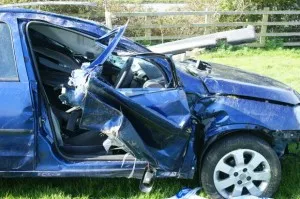National Transporation Safety Calls for Lowering Legal BAC Level

In 2013, the National Transportation Safety Board made recommendations to all states to lower BAC (blood alcohol content) limit to .05 percent or even lower from the existing .08 percent in order to reduce the number of drunk driving motor vehicle crashes.
Recommendations Focus on Two Bans:
In January 2016, the agency released its “most wanted list” which was a list of policies it would like implemented on a national level. The list included lowering the BAC level and outlawing all cell phone use while driving, even hands-free technology.
Regarding the .08 percent, the agency is quoted as saying, “In fact, by the time it reaches that level, the risk of a fatal crash occurring has more than doubled. That is why states should lower levels to 0.05-or even lower”. Admittedly, the agency said they need more data to better understand the scope of the problem and the effectiveness of countermeasures.
Resistance to Lowering BAC:
Lowering the BAC level has not gained a lot of traction among state legislatures. In fact, Mothers Against Drunk Driving have not officially backed the move.
Resistance to lowering the BAC also comes from American Beverage Institute, “Moving from 0.08 to 0.05 would criminalize perfectly responsible behavior”. ABI said that the recommendation is ludicrous and further restricting the moderate consumption of alcohol by responsible adults prior to driving does nothing to stop hardcore drunk drivers from getting behind the wheel”. ABI believes NSTB’s reasoning is flawed and by lowering the BAC to .05, the average American could end up behind bars for having a single glass of wine.
Furthermore the ABI states the reason the US has a persistent alcohol related fatal crash problem is because policies focus on the moderate social drinkers and fail to focus on the hardcore drunk drivers who are often repeat offenders. ABI believes focusing on keeping serial offenders off the roadway and not allowing them to slip through the cracks would have the biggest impact on car crash fatalities.
Some authorities believe that lowering the BAC will never actually happen. A Georgia official stated that a person’s BAC level and how they operate is situational. Eckert said, “I have seen people who are alcoholics blowing a 0.3 and are doing pretty good, then there are other people at a 0.04 falling down drunk”. However, he did say that the average BAC is well over a 0.05. He indicated the averages for 2014 were 0.11 to a 0.12. He did agree that the nationwide effort to combat DUI-related incidents is used to persuade people not to drink and drive.
Statistics:
The US, Canada and Iraq are among a few countries who have set the BAC level at .08. Most countries in Europe, including Russia, and most of South America and Australia have set BAC levels at .05 to constitute drunken driving. When Australia dropped its BAC level from .08 to .05, provinces reported a 5-18 percent drop in traffic fatalities.
Nearly 10,000 people die in alcohol-related traffic deaths and 170,000 are injured according to NTSB. While twice that many were killed 30 years ago, it remains a consistent threat to public safety. Studies show that roughly 4 million people admit to driving while under the influence of alcohol.
The NTSB believes if all 50 states lowered their standard to .05, nearly 1,000 lives could be saved each year. The last move from .10 to .08 BAC levels took 21 years to implement. The NTSB is an investigative agency that advocates on behalf of safety issues, however, it would be up to individual states whether to accept the NTSB’s recommendations and up to the Department of Transportation to endorse the recommendations.
Those Injured in Alcohol-Related Crashes

Victims of drunk driving tend to have a different perspective on the importance of lowering BAC levels and the very idea that someone would climb behind the wheel under the influence. If you’ve been injured because of someone else’s choice to drive after drinking, then it’s a pretty personal issue. The reason there is so much emotion around a drunk driving crash is because in the majority of scenarios, the crash and subsequent injuries or deaths were completely preventable. In that regard, it is just waste and tragic.
If you chose to drive after you have been drinking you are generally being negligent and not using “the upmost care” in the operation of a vehicle. Our attorneys see the victims of drunk driving far too often and we represent those injured in drunk driving crashes. While injuries and fatalities are a huge issue in driving under the influence, the criminal aspect of being cited with a DUI is whole other nightmare.
At The Cagle Law Firm, we represent those injured in motor vehicle crashes. We know that the days and weeks following a motor vehicle crash are stressful, painful and often, life-changing. After seeking medical assistance, it is important that you consult an expert car crash attorney to be certain that your rights are protected as you can pretty much assume that the person assessed the DUI will be getting legal representation. If you are injured by a drunk driver, you cannot assume that the “drunk driver” will actually pay for any of your medical bills or lost wages through the criminal aspect of the case. However, you can bring a civil case that focuses on your damages, both economical and non-economical.
Call our attorneys seven days a week, at (314) 276-1681.
Contact Us Today
The Cagle Law Firm serves accident and injury clients throughout St. Louis and the greater St. Louis metropolitan area, including the eastern Missouri and southern Illinois communities. If you or a loved one needs legal assistance with your personal injury case, call The Cagle Law Firm at (314) 276-1681 or use our online contact form to schedule a free consultation.
Areas Served
The Cagle Law Firm – Missouri
The Cagle Law Firm – Illinois
The Cagle Law Firm – Kentucky
CONTACT THE CAGLE LAW FIRM TODAY
Schedule your FREE CONSULTATION today by contacting us at (314) 276-1681 or by sending us an email through the online contact form.
Contact Us Today
Request Your Free Consultation
Fields marked with an * are required
Copyright © 2024 The Cagle Law Firm. All rights reserved.





